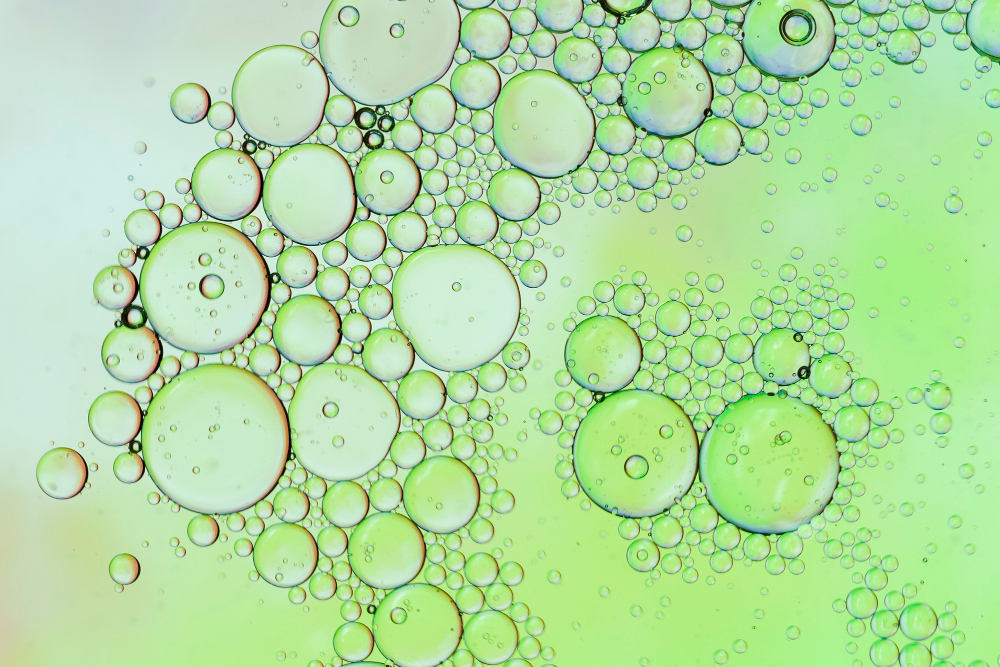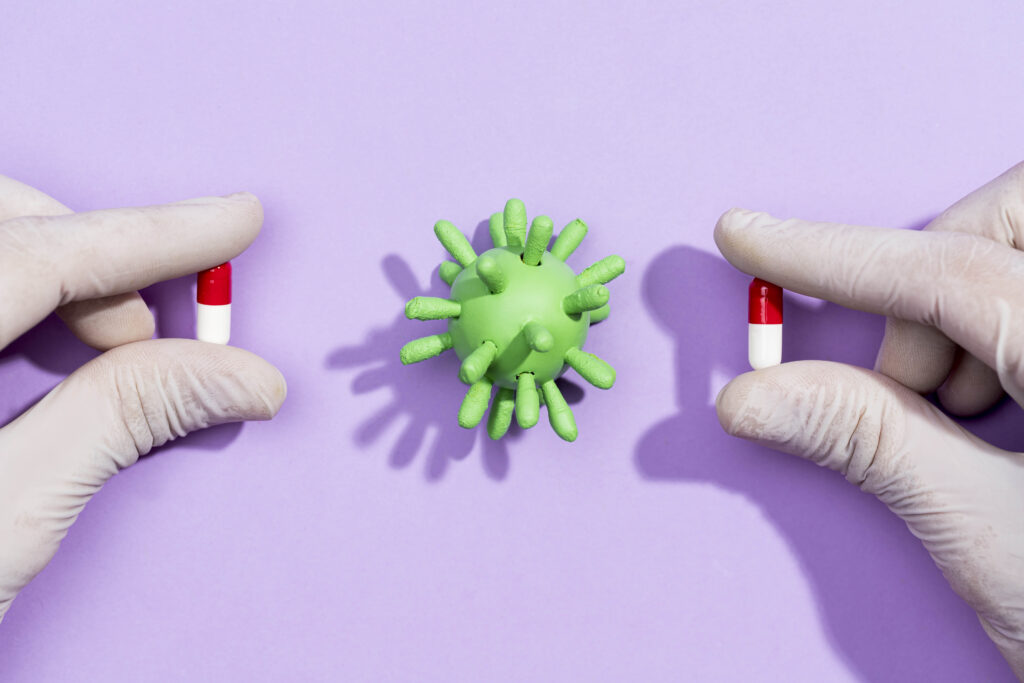What Does Your Gut Have to Do with ADHD?

Attention-Deficit/Hyperactivity Disorder (ADHD) has long been viewed as a neurological condition — one influenced by genetics, environment, and brain chemistry. But growing research is revealing another, less obvious contributor: the gut microbiome.
Scientists now understand that our digestive tract and brain communicate constantly through the gut–brain axis — a two-way system involving nerves, immune signals, and hormones. This connection means that the state of your gut may affect not only digestion, but also attention, mood, and cognitive control.
The question researchers are now exploring is: could improving gut health help manage some ADHD symptoms naturally?
The Gut–Brain Axis: Where Digestion Meets Focus
The gut–brain axis connects the central nervous system with the enteric nervous system — often called the “second brain.” This communication runs through the vagus nerve, which transmits signals from the gut to the brain and vice versa.
In addition to neurons, the gut houses trillions of bacteria that help regulate mood and cognition. These microbes influence the production of key neurotransmitters — including dopamine, serotonin, and GABA — all of which play central roles in attention, motivation, and emotional regulation.
When the gut microbiome is healthy, it supports stable energy levels and focus. But when imbalanced — a state known as dysbiosis — it can lead to inflammation, impaired nutrient absorption, and irregular neurotransmitter signaling that may affect cognitive function and behavior.

Emerging Research Linking Gut Health and ADHD
The connection between gut health and ADHD is gaining scientific attention, and early findings are promising.
A recent study published in PLOS ONE examined differences in gut microbiota between individuals with ADHD and neurotypical controls. The researchers found that people with ADHD showed reduced microbial diversity, including lower levels of Bifidobacterium and Lactobacillus species — bacteria involved in producing dopamine precursors that affect motivation and focus.
Meanwhile, a systematic review published in Current Treatment Options in Psychiatry explored the effects of gut-microbiota modulation in adults with ADHD. The review concluded that targeting the gut microbiome through probiotics and dietary interventions could improve emotional regulation, concentration, and overall behavioral outcomes in ADHD patients.
Together, these studies suggest that supporting gut health — particularly through probiotics and nutrition — may help balance neurotransmitter activity and enhance attention and mood regulation in individuals with ADHD.
How Gut Imbalance Might Influence ADHD Symptoms
Researchers believe the gut may affect ADHD through several overlapping pathways:
- Neurotransmitter Regulation
Gut bacteria help produce dopamine and serotonin precursors. An imbalanced microbiome can disrupt these pathways, influencing attention, motivation, and reward processing. - Inflammation and the Immune System
Dysbiosis can increase intestinal permeability (“leaky gut”), allowing inflammatory molecules into circulation. Chronic inflammation has been linked to altered brain signaling and cognitive dysfunction. - Nutrient Absorption and Metabolism
The gut microbiome helps absorb and metabolize nutrients critical to brain health, including zinc, magnesium, iron, and omega-3 fatty acids — all of which are commonly low in people with ADHD. - Stress Response Regulation
Gut microbes help modulate cortisol and stress hormones, influencing emotional stability and impulse control.

In short, when your gut is out of balance, it can send the wrong signals to your brain — potentially intensifying symptoms like hyperactivity, restlessness, and poor concentration.
The Role of Probiotics in Supporting Focus and Emotional Balance
Given the gut’s involvement in neurotransmitter production and inflammation control, probiotics have gained attention as a potential complementary therapy for ADHD.
Studies show that probiotic strains like Lactobacillus rhamnosus GG and Bifidobacterium longum can improve gut integrity, reduce inflammation, and enhance dopamine synthesis — supporting focus and emotional regulation. Probiotics may also help manage secondary symptoms of ADHD, such as anxiety, sleep disturbances, and digestive discomfort.
While more research is needed to confirm long-term outcomes, early findings indicate that gut-focused nutrition and probiotic supplementation can be valuable adjuncts to conventional ADHD management.
At Bioma Health, we focus on the science of the microbiome — how it influences mental clarity, mood, and overall wellbeing. Our evidence-based probiotic solutions are designed to restore microbial balance and support healthy gut–brain communication. To learn how your gut health could affect attention and emotional stability, visit Bioma’s Gut Health page.

Diet and Lifestyle Strategies to Support Gut–Brain Health
Whether or not you take probiotics, maintaining a healthy gut environment can support both digestive and cognitive health. Here’s how to get started:
1. Feed Your Gut With Fibre
Whole grains, legumes, fruits, and vegetables provide prebiotics — the fuel beneficial bacteria need to thrive.
2. Eat Fermented Foods
Foods like yogurt, kefir, kimchi, and sauerkraut introduce natural probiotics that enhance microbial diversity.
3. Limit Ultra-Processed Foods and Sugar
Highly processed diets can disrupt the microbiome and spike inflammation, worsening focus and mood.
4. Prioritize Omega-3s and Polyphenols
Foods rich in omega-3 fatty acids (salmon, flaxseed, walnuts) and antioxidants (berries, green tea, turmeric) support brain and gut function.
5. Get Consistent Sleep and Movement
Both are essential for stable neurotransmitter activity and microbiome diversity. Even light daily exercise can positively influence gut health.

These habits strengthen the foundation of the gut–brain axis, helping the body manage stress, sustain attention, and regulate energy levels more effectively.
The Bigger Picture: Integrating Gut Health Into ADHD Care
Gut health won’t “cure” ADHD, but it represents an exciting new frontier in managing it holistically. Nutrition, probiotics, and lifestyle shifts can work alongside therapy and medication — targeting the biological systems that influence behavior and focus.
As scientific understanding evolves, one theme remains clear: the brain doesn’t operate in isolation. It depends on the gut’s microbiome to produce the chemicals, nutrients, and signals it needs to function at its best.
Focus Begins in the Gut
The connection between the gut and ADHD highlights a simple but powerful truth: a healthier gut can help support a healthier mind. By optimizing the microbiome through balanced nutrition, probiotics, and mindful living, it’s possible to improve focus, emotional stability, and overall quality of life.
Related articles



